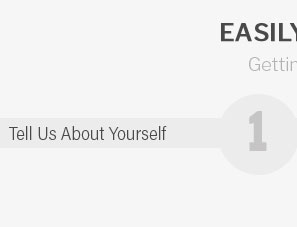 |
 |
 |
|---|
 |
 |
 |
 |
|---|
 |
 |
 |
 |
 |
 |
|---|

Calculate My Car Insurance Cost: Navigating the IntricaciesCar insurance is an indispensable aspect of owning a vehicle, yet the process of calculating its cost can often seem shrouded in mystery. While some might find the intricacies overwhelming, others view it as an opportunity to secure optimal coverage at a reasonable price. Whether you're a novice driver or a seasoned road warrior, understanding the elements that influence your car insurance premium can significantly impact your financial planning. When embarking on the journey to determine your car insurance cost, several key factors come into play. First and foremost, your driving record stands as a testament to your reliability behind the wheel. A clean record could pave the way for lower premiums, whereas a history dotted with accidents or traffic violations might lead insurers to view you as a higher risk, thereby elevating your costs. Additionally, your age and experience can be telling indicators; younger drivers or those with limited experience often face steeper rates due to perceived risk factors. Moreover, the type of vehicle you own plays a significant role in this financial equation. High-performance cars, for instance, often attract higher premiums due to their potential for costly repairs and their appeal to thrill-seekers. Conversely, vehicles with advanced safety features or those with a reputation for reliability might help in reducing your insurance costs. It's wise to consider these aspects when purchasing a car, as they could have long-term implications on your insurance expenses. Location is another crucial consideration. Living in an area with high crime rates or heavy traffic congestion might increase your premiums, as the likelihood of accidents or theft is statistically higher. Conversely, residing in a rural area with lower traffic density could work in your favor. Insurers often use geographic data to assess risk, thus influencing the cost of your coverage. Another influential factor is the coverage level you choose. Basic liability insurance might be the most economical option, but it may not provide the comprehensive protection many drivers seek. Opting for additional coverage, such as collision or comprehensive insurance, ensures a broader safety net but naturally leads to higher premiums. It's a delicate balance between securing adequate protection and managing financial outlay, a decision that should be weighed carefully. Furthermore, it's worth exploring the plethora of discounts that insurers offer. From bundling home and auto insurance to rewarding safe driving habits with reduced rates, these discounts can make a tangible difference. Even affiliations with certain organizations or maintaining a good credit score might unlock further savings. It is advisable to inquire about all potential discounts when negotiating with your insurer. In conclusion, calculating your car insurance cost is a multifaceted process influenced by personal factors, vehicle characteristics, and external conditions. By understanding these dynamics, you can make informed decisions that align with your financial goals and risk tolerance. While the process may seem daunting, it ultimately empowers you to navigate the insurance landscape with confidence and clarity, ensuring you secure the best possible coverage at a cost that reflects your unique situation. https://www.allstate.com/resources/car-insurance/coverage-calculator
To determine your rate, an auto insurer will assess the level of risk you bring with you; the more risk you present, the higher your premium will be. Your ... https://caredge.com/insurance
Calculating the average cost of auto insurance is a combination of the car you drive and your persona. Your age, location, credit score and driving history ... https://www.bankrate.com/insurance/car/car-insurance-calculator/
The average cost of full coverage car insurance is $223 per month as of March 2025. For liability-only minimum coverage, the national average of $67 per month.
|
|---|